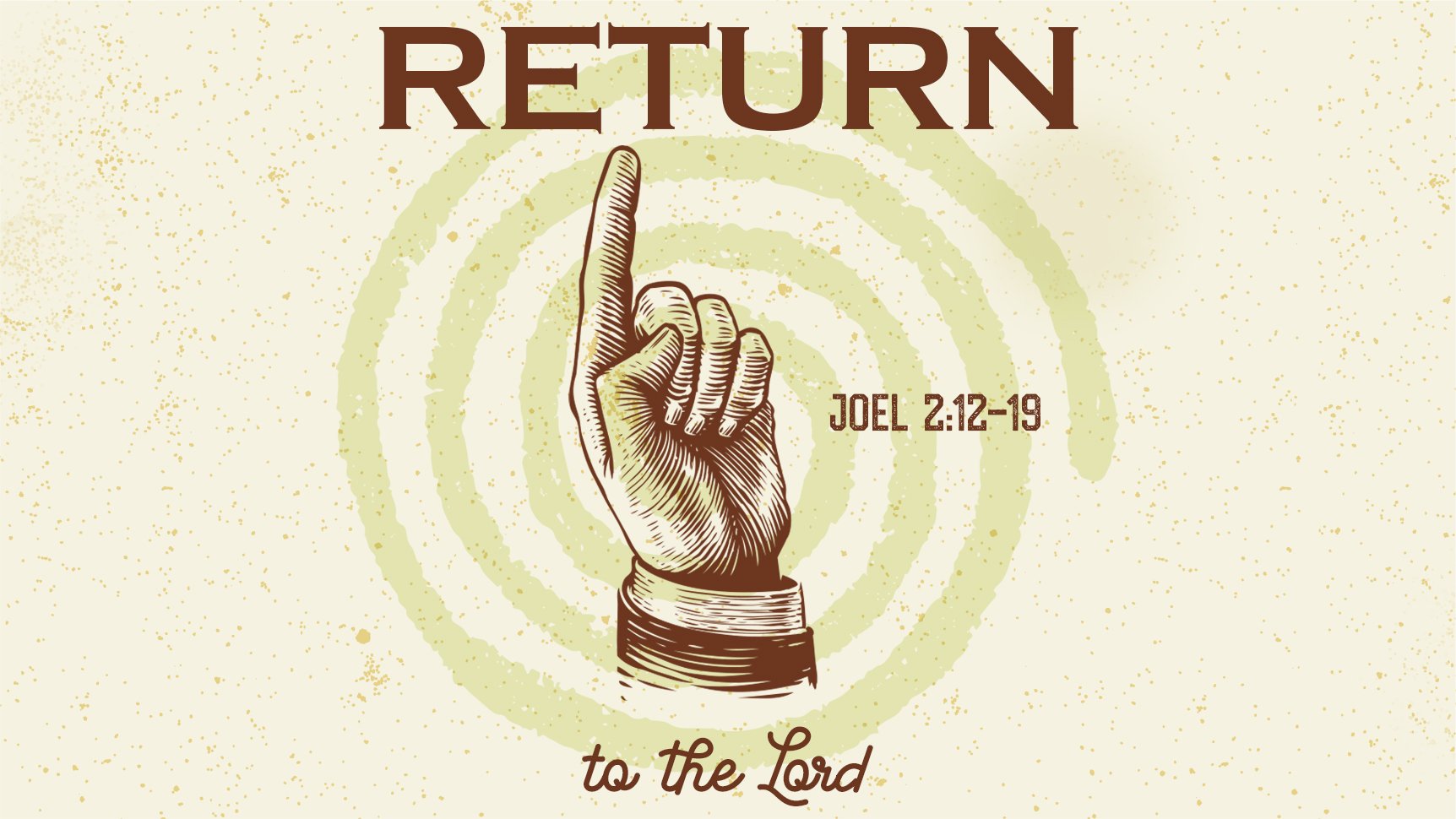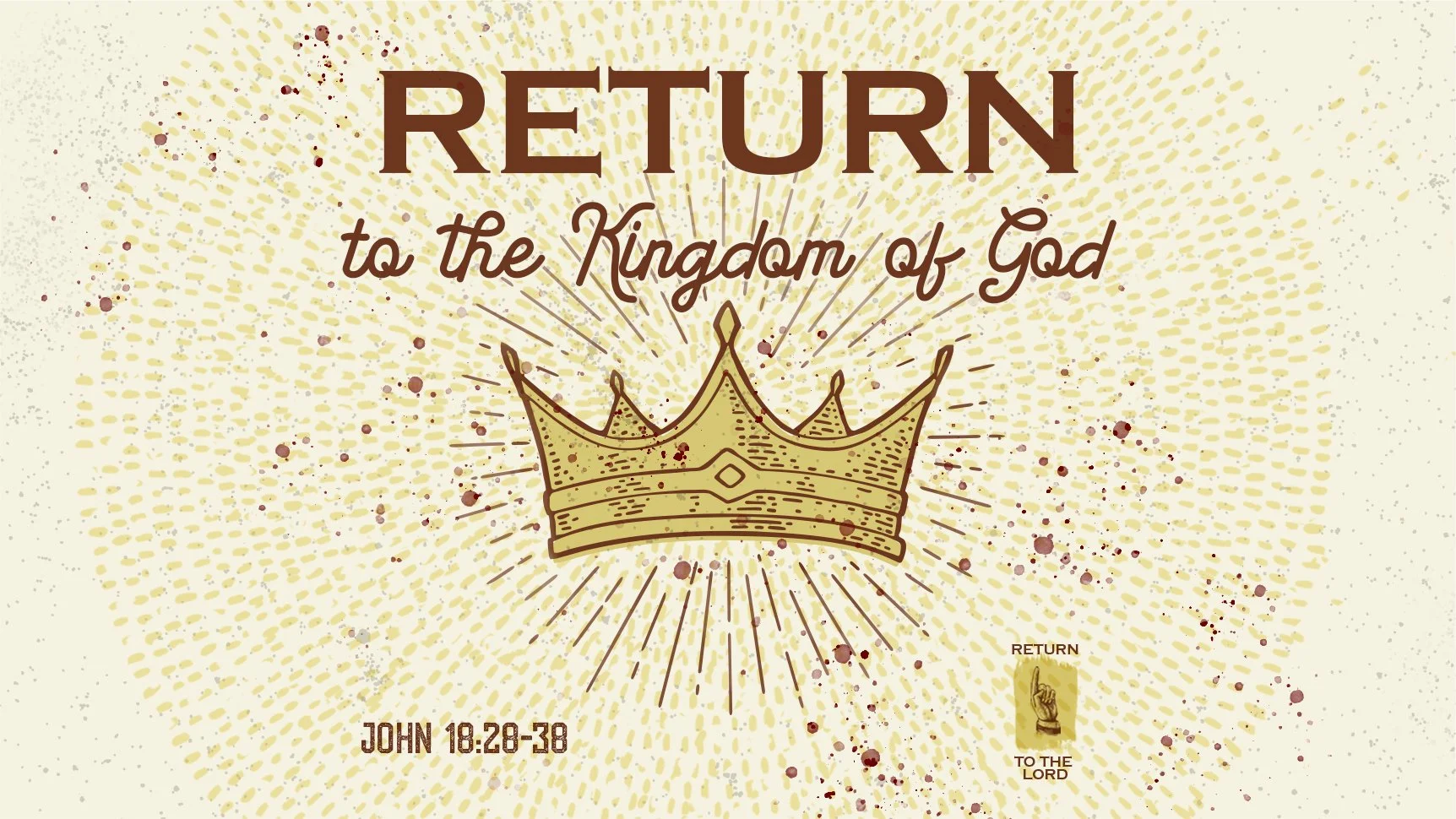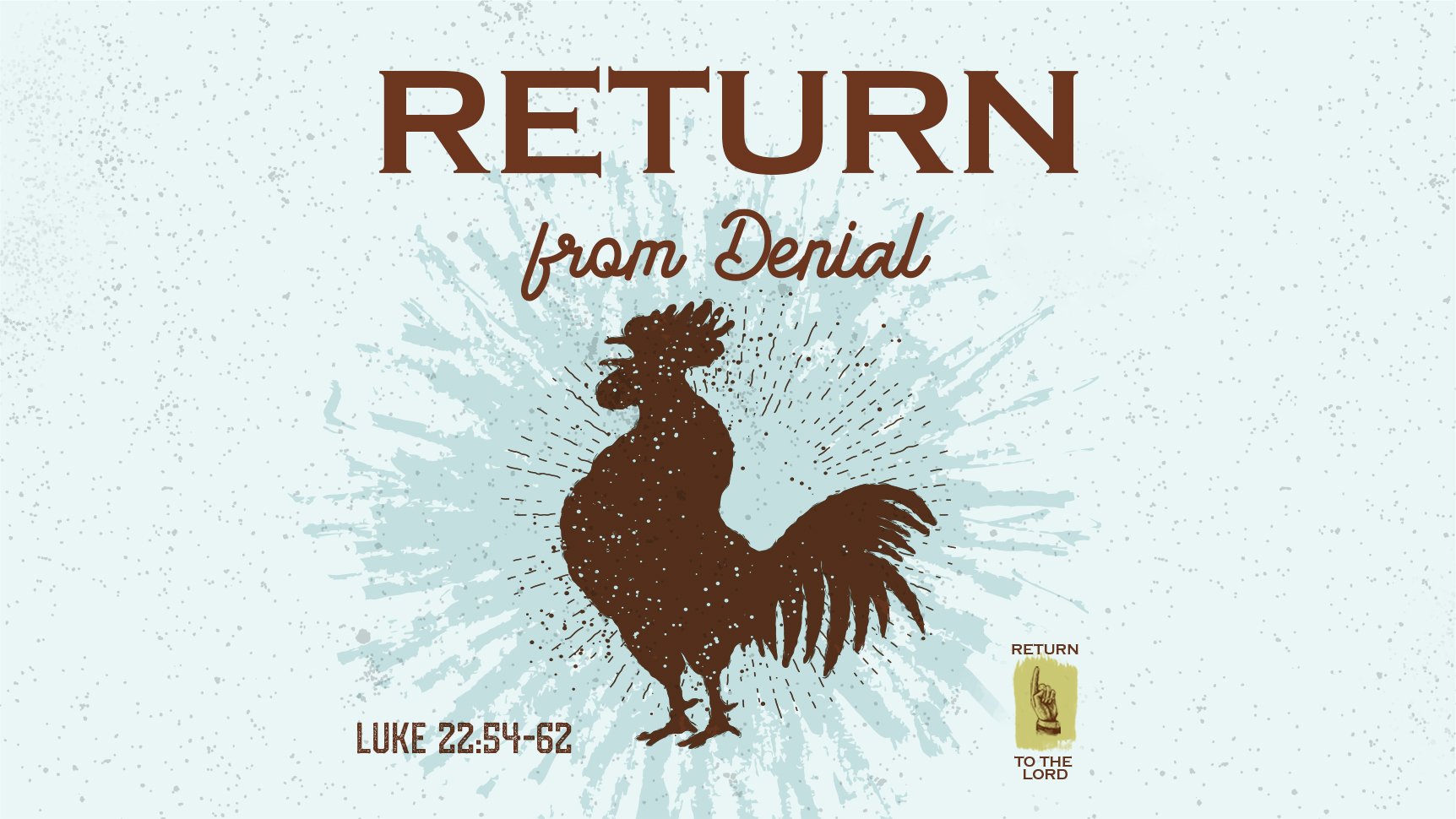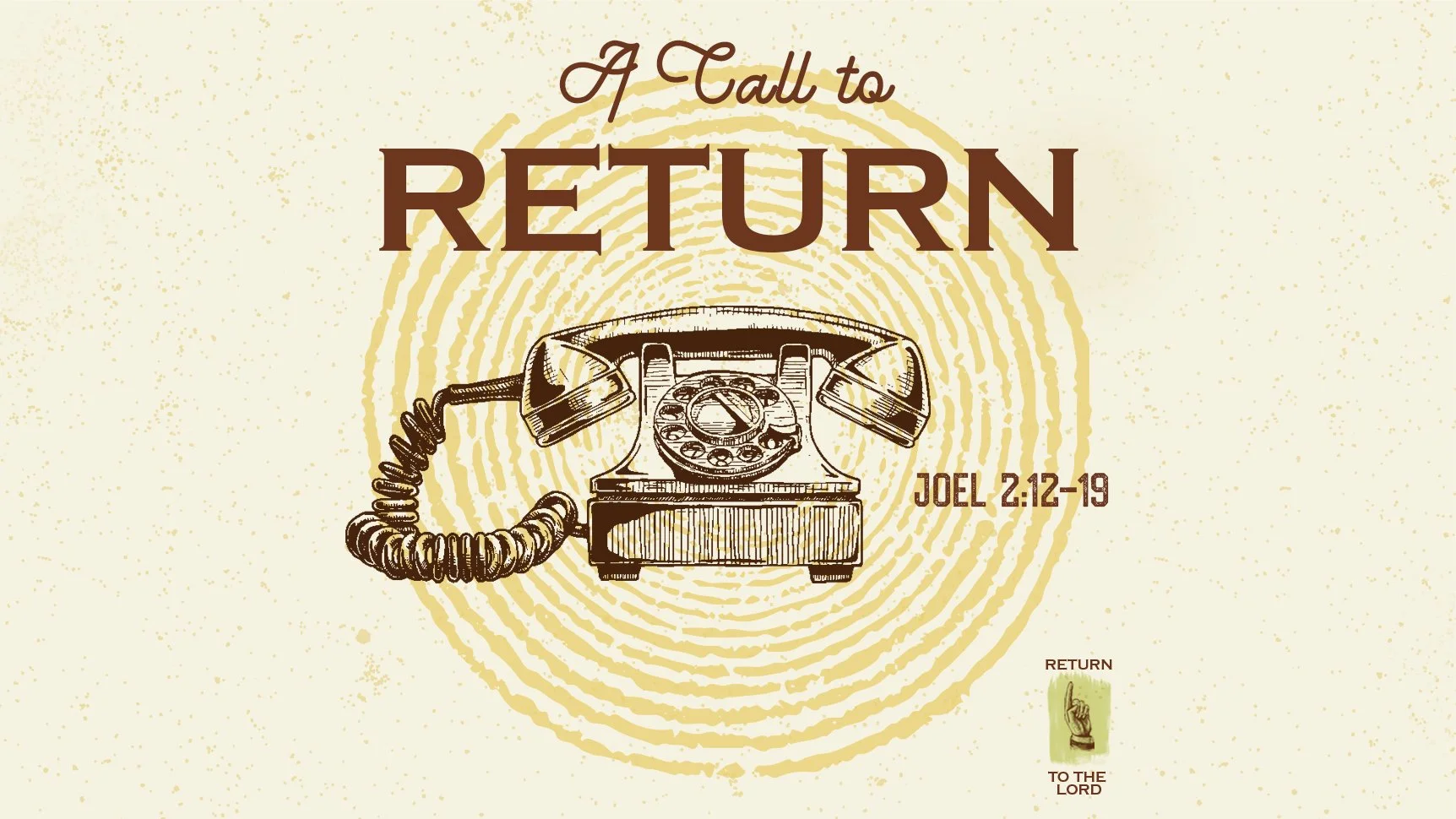A Call to Return | Fourteenth Sunday after Pentecost | Joel 2:12–19
“...Return to the Lord your God,
for he is gracious and merciful,
slow to anger, and abounding in steadfast love...”
September 11 | 10:45 a.m.
Fourteenth Sunday After Pentecost
READINGS
Joel 2:12–19
Psalm 51:1–13–19
2 Corinthians 5:20b–6:10
Matthew 6:1–6, 16–21
message presented by Rev. Frank C. Ruffatto
Note: It was also Rally Day. Check out photos from the festivities here. >>
+Points to ponder
- What are the locusts that get in the way of your relationship with Christ?
- What are the locusts that get in the way of your relationships with your brothers and sisters Christ?
- Does the prophet Joel have words of comfort for you? If so, do they help you answer the call to ‘Return to the Lord’?
+Sermon Transcript
Grace, mercy, and peace be unto each of you from God our Father and our Lord and King, Jesus the Christ. Amen.
Let us pray: O Lord Almighty, only Son of the Father, free us from the bonds of our sins and fill us with all spiritual gifts. Let Your grace go before us and follow us, that we may faithfully serve You here, and be numbered with Your saints in glory everlasting; Amen.
“Return to the Lord your God!”
This is the drumbeat of our worship series in these next several – okay nine more weeks. As we celebrate the Lord’s blessings toward and for Redeemer in the midst of all the challenges we have faced from pandemic to apathetic, the cry is “Return!”
And so, as we fine tune our ears to God’s Word, we hear God calling out to us: “Return to Prayer”; “Return from Betrayal”; “Return from False Witness”; “Return from Denial”; “Return to the Kingdom of God”; “Return to the Sacraments”; “Return to Truth”; “Return to the Church”; “Return and See” what God has done for you.
And so, as we launch this series, we gather together first to hear Joel’s prophecy and God’s invitation. Our Old Testament Reading from Joel gets us oriented to the work that God in Christ, does for His people. This reading highlights the problem and lays out the solution in all its beauty and simplicity. God calls us to simply return to Him, because He will address our needs and provide for our salvation.
Our endeavor today is simple: First, we will look at Joel’s prophecy and the context in which it came. What was going on? How did God’s words speak to the situation? And how might that have sounded to the people?
Second, we will think about whether this prophecy applies to us. Are these words only for the Israelites in Joel’s day, or do they have something to offer to us as well?
Finally, we’ll hear this invitation and promise offered to us and spend a little time getting oriented to how we will walk down this path.
Let’s begin by doing a little time-traveling to ancient Israel, where we can get some idea of the people to whom Joel was speaking and understand more about what was going on in their world.
We don’t know a lot about Joel. He was a prophet, likely ministering in the Southern Kingdom of Judah. The book that bears his name is relatively short – only seventy-three verses organized into just three chapters. But it is rich and deep and complex. His jumping-off point is a plague of locusts that had or would strike Israel and that served to foreshadow the coming “Day of the Lord.” Whether that plague was literal or figurative is unclear, but Joel’s message is straightforward: a day of judgment will come, and he pleads with the people to turn to God so that they would be found righteous on that “great and awesome day.”
The outline of Joel’s prophecy is simple:
PART ONE: There’s an invasion of locusts that will destroy all vegetation. Joel calls the people to fast at the temple and then offers a prayer of lament over the coming destruction.
PART TWO: If you thought that locust infestation was bad, there’s something even more significant coming: “the day of the LORD is coming; it is near.” Joel describes the Lord’s army using the imagery of the destroying locusts. He issues a call to return to the Lord and to fast and pray at the temple.
PART THREE: God responds. First, to the locust plague, offering healing and restoration. Then, on a much bigger scale, God responds in the day of the Lord, giving salvation to those who call on His name and passing judgment on the worldly nations who have played fast and loose with God’s chosen people.
Our Reading for today is drawn right out of the center of the book. The imagery of the swarm of locusts has been completed; the comparison to the Lord’s army and the Day of the Lord has been made; and the reader is left wondering what can be done.
It’s a little like the scene when the rich young man approaches Jesus and asks what good deed he must do to have eternal life. Jesus counsels the young man to sell all of his possessions and give to the poor, presumably to undercut that man’s love of money. And the young man goes away sad. Jesus turns to His disciples and explains how difficult it is for someone with wealth to enter the kingdom of heaven. And the disciples “were greatly astonished, saying, ‘Who then can be saved?’”
You almost hear Joel’s audience asking the same of him: “Who then can be saved?” But Joel brings good news; he brings a promise. And it’s simple: “It shall come to pass that everyone who calls on the name of the LORD shall be saved.”
They needed only to return to the Lord their God, “for He is gracious and merciful, slow to anger, and abounding in steadfast love; and He relents over disaster.”
They needed only to stop trusting in themselves and to trust in God. They needed only to realize that just as they couldn’t stop the swarming locusts, neither would they be able to stop Judgment Day. It will come. All will be affected. And the only solution is to return to the Lord. But are those words only for the Israelites? Might you be facing a swarm of locusts that threatens to completely destroy you?
You certainly are. There are small, unassuming little things that each do a little bit of damage. But they add up to a destructive force that descends on the landscape and decimates everything good in its path. Your sins are your locusts. And while one little locust doesn’t seem all that terrifying, when the entire list of your deeds is considered, it is breathtaking and terrifying. If as St. Paul writes, the “wages of sin is death” , and if, as Ezekiel says, “the soul who sins shall die” , then this locust swarm of our sins is frightening indeed.
Joel’s words can and should hit you the same way they hit the Israelites. The Day of the Lord will come, and with it immense destruction and terror. Of yourself, there is no way to escape it. The times you took God’s Word for-granted thinking it just an ordinary book of fables and half-truths; the times you didn’t put your spouse first and instead said or did something that ended up dividing instead of uniting you to one another; the times that illicit thoughts bubbled to the surface despite Jesus’ warning that to look at another lustfully is tantamount to adultery; the times that you neglected your brothers and sisters in Christ, disinclined to participate in the life of the Body of Christ; the times when you blew off worship because you just didn’t care to hear what that boring preacher had to say; the times when you strung together a string of curse words that would make a dockworker blush; and, especially those times when you decided that you knew better than God about … well … everything. That’s the swarm of locusts, and destruction of all of the vegetation is the least of your worries. Eternal death and damnation should absolutely terrify you.
But, beloved, Joel brings good news for you too! He brings a promise. And it’s simple: “It shall come to pass that everyone who calls on the name of the LORD shall be saved.”
Return to the Lord your God, “for He is gracious and merciful, slow to anger, and abounding in steadfast love; and He relents over disaster.” In spite of your sinful rejection of God, He invites you to return to Him and promises to bless you. Stop trusting in yourself and look to God. Know that you can’t stop the swarming locusts and you can’t stop Judgment Day. It will come. All will be affected. And the only solution is to return to the Lord.
Over the coming weeks, we will explore more deeply how God’s call to return plays out in our lives, and we’ll do so by walking in the steps of the disciples and those who accompanied Jesus, especially in the final days of His life. We will hear the call to return as it echoes in their ears and maybe come to understand it the way they did.
For example, next week we will spend some time with Peter, James, and John as they accompany Jesus in the Garden of Gethsemane. Our theme is “Return to Prayer.” Similar themes will follow each week of celebration series. And so, the invitation stands for you to be here for each of our celebration services as we follow Joel’s call to “gather the people. Consecrate the congregation; assemble the elders; gather the children, even nursing infants.” We’ll come together and listen to God’s call, and we will return to Him, “for He is gracious and merciful, slow to anger, and abounding in steadfast love.” Amen.
“May the God of hope fill you with all joy and peace in believing, so that by the power of the Holy Spirit you may abound in hope.”
ABOUT THE SERIES
In the Book of Joel, the prophet paints a vivid picture of the coming judgment of God, the Day of the Lord. The imagery is bold and terrifying. Joel’s prophecy has teeth even today as wars rage, natural disasters threaten and destroy, and our culture seems to be unraveling.
But right in the middle of this frightening portent, we find a tender invitation from the Lord: “Return to the Lord your God, for He is gracious and merciful, slow to anger, and abounding in steadfast love; and He relents over disaster” (Joel 2:13). God’s invitation and promise finds its fullness in Jesus Christ, who personifies and accomplishes all that God declares.
During this series, we will consider the theme “Return to the Lord” and examine how the call to return played out in practical ways for the people who walked alongside Christ as He demonstrated and carried out God’s grace and mercy on our behalf, taking God’s wrath upon Himself, setting the stage for God to “turn and relent, and leave a blessing behind Him” (Joel 2:14).
Join us for the Return to the Lord series at Redeemer.











